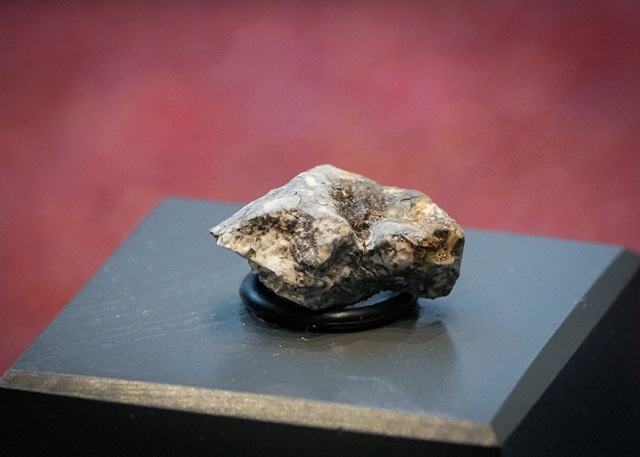Shocking find of rear meteorite excites scientists in Germany

Admin I Saturday, August 03, 2024
BERLIN – The meteorite that crashed to Earth near Berlin in January is about 4.5 billion years old and belongs to the rare class of aubrites, scientists wrote in an article published earlier in the week in the Meteoritics & Planetary Science journal.
Diminutive asteroid 2024 BX1 burned up on January 21 near Berlin, in a spectacular celestial show. Fragments fell to the ground in the Havelland region of the state of Brandenburg that surrounds the German capital and many were gathered by scientists and collectors.
Some 202 fragments weighing a total of 1.8 kilograms were found in a scatter field near the Brandenburg villages of Ribbeck, Berge and Lietzow, strewn across an area of 1.5 by 10 kilometres.
Scientists named the meteorite Ribbeck after the site where it was found.
A study by researchers led by the Institute of Planetology at the University of Münster that was published in the journal on Wednesday found that Ribbeck belongs to the extremely rare class of aubrites which are rich in magnesium and silicon.
Ribbeck holds a special status within this rare class as the rock contains an exceptionally high proportion of feldspars, a mineral that belongs to the silicate group, the scientists found.
The research group assumes that the parent body of Ribbeck is about 4.5 billion years old and originates from the asteroid belt between Mars and Jupiter.
The scientists also explained why the fragments smelled intensely of hydrogen sulphide, a smell similar to that of rotten eggs: Chemical reactions between the mineral phases and moisture, which resulted from snow and thaw, cause the smell and changed the mineralogy of the rock.

